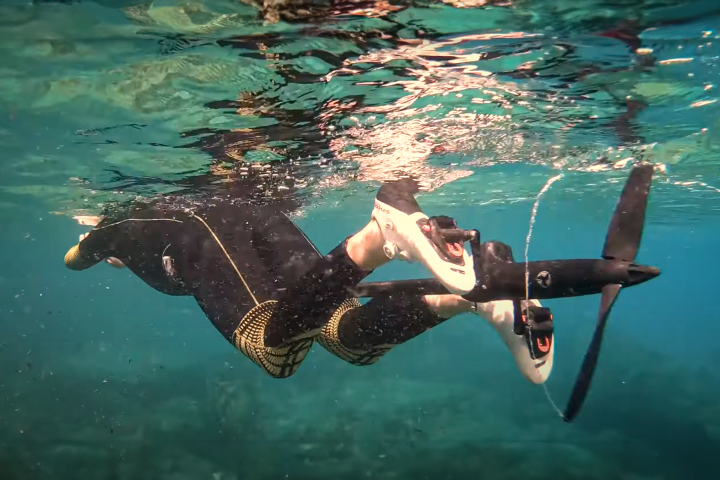Recent research has raised the alarm over the potential health impacts of consuming water from plastic bottles, with scientists concerned over the chemicals that can leach into the liquid with unknown impacts on human health. A new study has investigated this phenomenon with regard to bottles of the reusable variety, revealing that they release hundreds of chemicals into the water and why putting them through the dishwasher may be a bad idea.
The study was carried out by researchers at the University of Copenhagen and focused on the type of soft and squeezy bottles used in sports. While these are incredibly commonplace around the world, the authors say there is a big gap in our knowledge around how chemicals from these plastics can migrate into the drinking water they hold, so they conducted experiments to fill in some of the blanks.
Both new and heavily used drink bottles were filled with ordinary tap water and left to rest for 24 hours, both before and after being put through a dishwasher cycle. The scientists used mass spectrometry and a liquid chromatograph to analyze substances in the liquid before and after the machine washing, and also after being rinsed five times with tap water.
"What is released most after machine washing are the soap substances from the surface," said first author Selina Tisler. "Most of the chemicals that come from the water bottle itself remain after machine washing and extra rinsing. The most toxic substances that we identified actually came after the bottle had been in the dishwasher – presumably because washing wears down the plastic and thereby increases leaching."
The scientists found more than 400 different substances in the water that came from the plastic material, and more than 3,500 substances from dishwasher soap. Most of these are unknown substances that the researchers are yet to identify, and even of those that were able to be identified, the toxicity of at least 70 percent of them is unknown.
"We were taken aback by the large amount of chemical substances we found in water after 24 hours in the bottles," said study author Jan H. Christensen. "There were hundreds of substances in the water – including substances never before found in plastic, as well as substances that are potentially harmful to health. After a dishwasher cycle, there were several thousand."
Among the substances that the scientists did find through their experiments were photo-initiators, molecules known to have toxic effects on organisms, with the potential to act as carcinogens and endocrine disruptors. They also discovered plastic softeners, antioxidants and release agents used in plastic manufacturing, along with Diethyltoluamide (DEET), the most common active substance in mosquito repellent.
The scientists believe that only a small number of the detected substances were added to the bottles intentionally during manufacturing. Most of them likely formed during use or production, where one substance may have been converted into another, such as a plastic softener they suspect is converted to DEET as it degrades.
"But even of the known substances that manufacturers deliberately add, only a tiny fraction of the toxicity has been studied," said Tisler. "So, as a consumer, you don't know if any of the others have a detrimental effect on your health."
The study adds to a growing body of research around how humans are likely consuming vast amounts of chemicals through our interactions with plastic products, and further illustrates the many unknowns in this space.
"We care so much about low levels of pesticides in our drinking water," said Christensen. "But when we pour water into a container to drink from, we unflinchingly add hundreds or thousands of substances to the water ourselves. Although we cannot yet say whether the substances in the reusable bottles affect our health, I’ll be using a glass or quality stainless steel bottle in the future."
The research was published in the Journal of Hazardous Materials.
Source: University of Copenhagen




